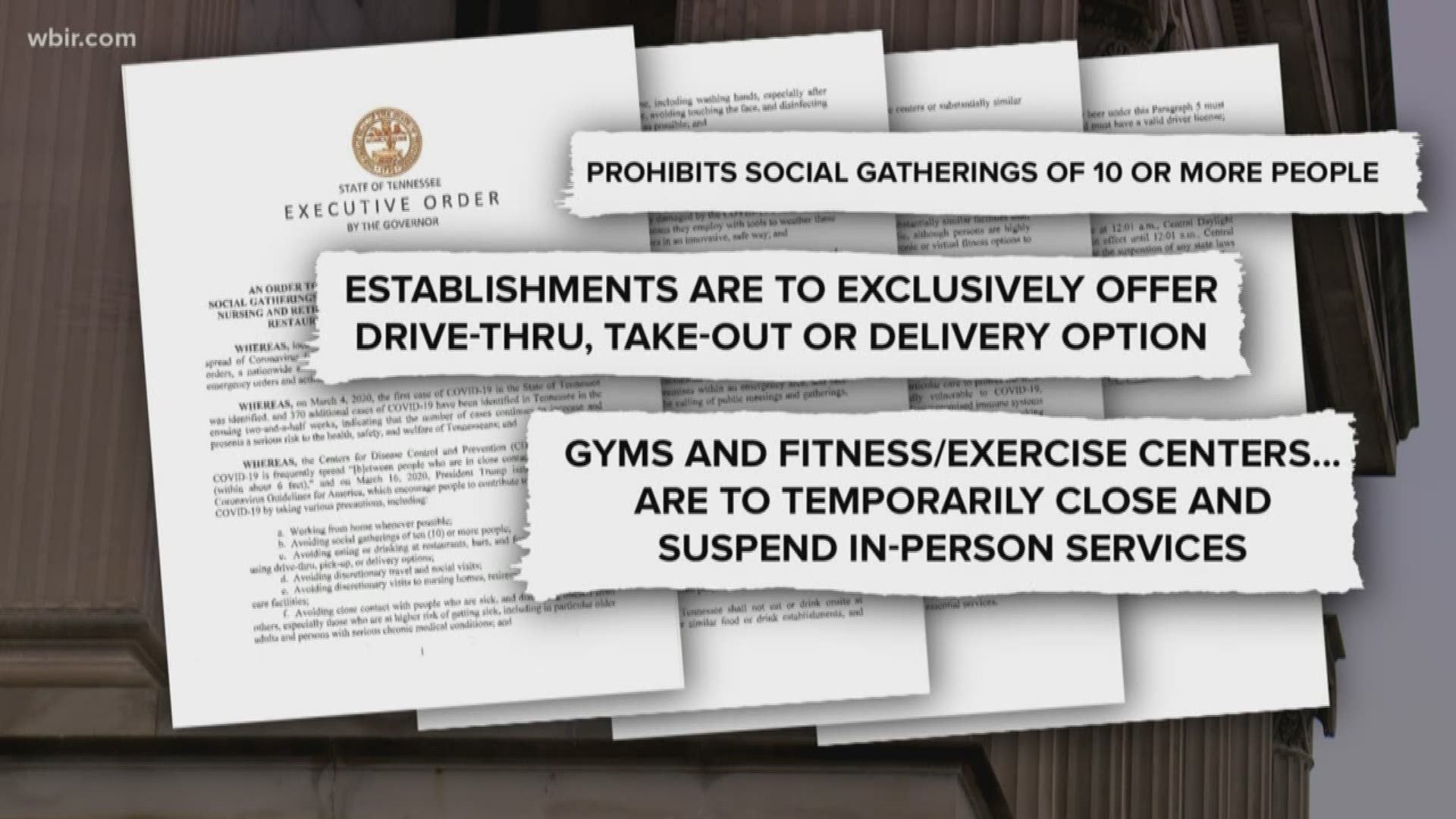NASHVILLE, Tenn. — For two and half decades, Dr. Aaron Milstone has been a proud Tennessean. He's treated patients at Vanderbilt Medical Center and Williamson Medical Center as a pulmonary and critical care physician.
"I'm proud of my time here in this state," Dr. Milstone told 10News on Sunday. "I'm very proud of our electoral body."
But now, he's urging the governor to take significant measures to stop the coronavirus before it's too late.
"We need to do more," Dr. Milstone said. "I still believe that a shelter in place is required for our great state to protect lives."
Dr. Milstone said there is currently no vaccine or definitive therapy for COVID-19 at this time. Any actions that can mitigate the spread of the virus will help health care workers in the long run.
On Friday, more than 600 physicians signed a letter asking Gov. Bill Lee to order a shelter in place to prevent a "disastrous" surge in cases.
On Sunday, Gov. Lee issued an executive order with new restrictions, but it does not mandate sheltering in place or close all non-essential businesses.
"Gov. Bill Lee acted in a bold way, but I believe that we can act bolder," said Dr. Tufik Assad, a pulmonary and critical medicine doctor at Williamson Medical Center. "The staff is stressed, overworked and severely concerned about major limitations in our personal protective equipment."
Dr. Assad has been treating patients for COVID-19. He wants everyone to know how serious this virus can be.
"We have several patients in our hospital, one who is very young and on a ventilator fighting for her life," Dr. Assad said. "This is somebody without any medical problems... young people can get very ill from this."
The governors of California, Connecticut, Illinois, New Jersey and New York have all ordered their residents to stay home.
Other states, like Kentucky, are mandating all non-essential businesses shut their doors.
"This is the next step that we need to take to reduce the contacts among Kentuckians until we can defeat this virus," Gov. Andy Beshear said Sunday evening.
Vanderbilt University Medical Center chief of infectious disease Dr. David Arnoff said measures like those will help slow down the number of new cases.
"What that does is buy us time and it's that kind of time that's going to be really valuable," Dr. Arnoff said. "The good of public health depends on each of us being responsible and doing the things that are within our power to protect our fellow citizens."

